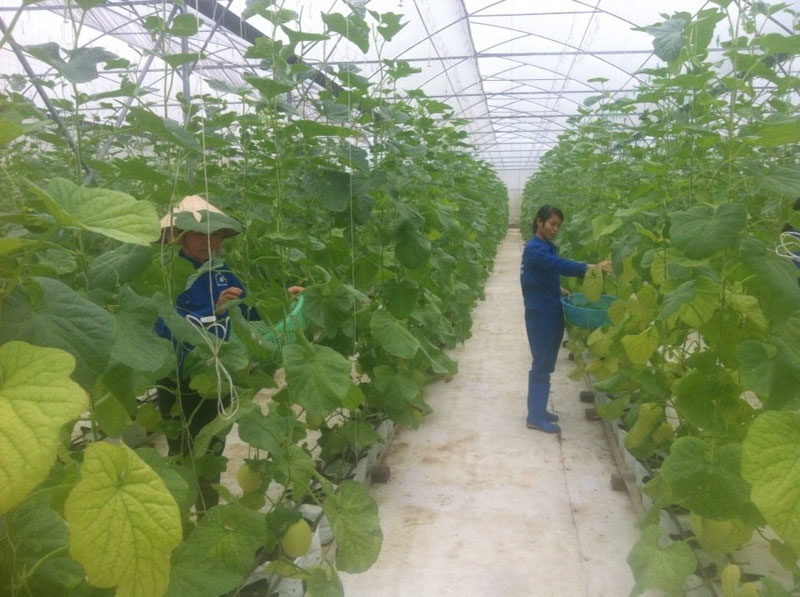
(HBO) – Over the past years, the northern mountainous province of Hoa Binh has issued many documents on scientific-technological development. They include the Action Programme No. 40-Ctr/BCSD dated February 18, 2016 of the Party Committee of the provincial People’s Committee on the implementation of the resolution of the provincial Party Organisation Congress for 2015-2020, and the project on scientific-technological development for the 2016-2020 period, with an orientation towards 2030.

Hoa Binh Gap One
Member Limited Company in Thanh Ha township, Lac Thuy district invests in growing
Kim queen melon in glasshouses.
Scientific-technological tasks at the provincial level
focus on urgent issues and requirements in reality. The most noteworthy in the
field of social sciences and humanities is the project on building the input
method editor of the Muong language in service of the preservation and
promotion of the Muong culture in Hoa Binh province. In the sphere of natural
sciences and technology, projects target the reasonable use and exploitation of
natural resources and environmental protection, such as the project on GIS
technology application in building e-maps managing irrigated areas in Cao Phong
and Luong Son districts. In education-training and public health care, there is
a project on studying chemical elements and evaluating biological activities of
compounds separated from Xa den (scientifically known as Celastrus hindsii Benth).
In agriculture, tasks aim to speed up the
scientific-technological application in producing livestock and plant varieties
that have good quality and are resistant to pestilent insects and suitable with
local ecology, looking towards the development of concentrated goods production
areas. The province has developed production areas of Cao Phong orange, chayote,
pomelo, Luong Son snake gourd, Son Thuy longan, hat doi (scientifically known
as Michelia tonkinensis) in Lac Son, and Tan Lac and Mai Chau garlic. The
province has also worked to build brand name for fish and shrimp of Hoa Binh
Lake.
Since 2013, the province has implemented nine projects
worth 87.9 billion VND sourced from scientific-technological development fund.
In Lac Thuy district, communes have been succeeded in promoting their One Commune-One Product (OCOP) products while others are still struggling to position their typical farming products in market. Some communes in the district still fail to have their products met OCOP programme’s requirements, while others have seen their certifications expired.
The inspectorate agency of Hoa Binh province has issued Official Dispatch No. 1090/TTr-PCTN to provincial departments, agencies, localities, business associations, enterprises, and investors regarding measures to improve informal component indexes of the Provincial Competitiveness Index (PCI).
Hoa Binh is taking concrete steps to improve its investment environment, with a strong focus on supporting businesses, settling obstacles for strategic investors, and creating opportunities for robust development in the coming years.
Under the blazing early summer sun, the construction site of Nhuan Trach Industrial Park (IP) in Luong Son district is abuzz with activities from dawn to dusk, a testament to the determination of the investor to meet their construction targets on schedule.



